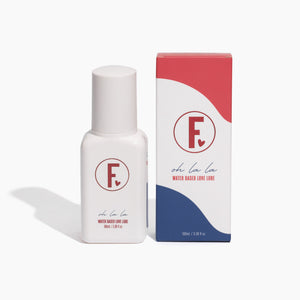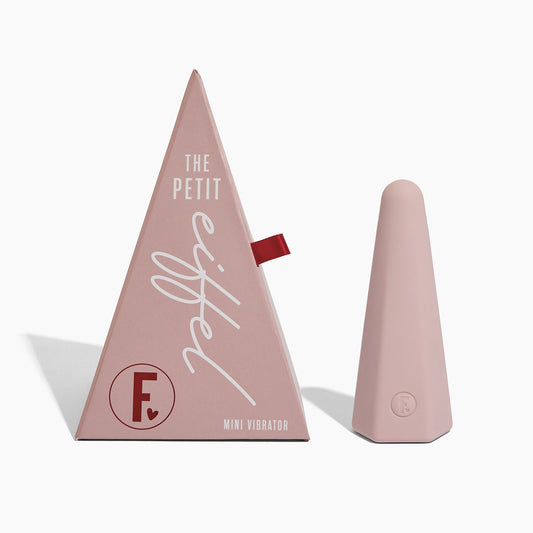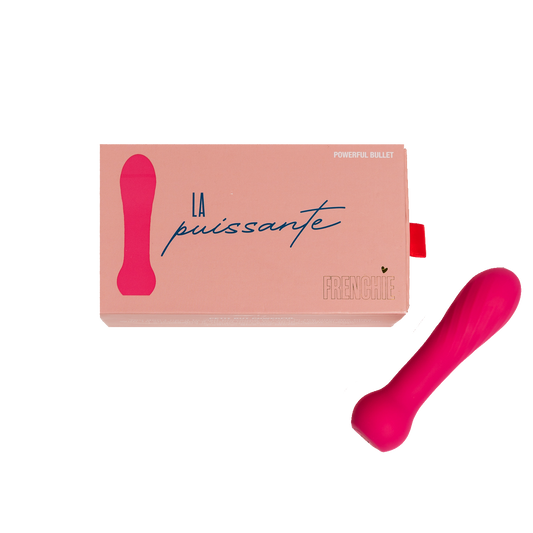Vaginal dryness is associated with the symptoms listed below. So if you’re experiencing one or more of these symptoms, it’s best to consult with your healthcare provider and take steps to relieve the discomfort (we will get more into that as well).
1. Vaginal irritation
Vaginal irritation involves a number of sub-symptoms, such as feeling sore or itchy in and around your vagina. You may also experience a rash in the affected area. This is one of the first and most common symptoms of vaginal dryness. The lack of moisture is sure to wreak havoc on your pH balance and irritate your vagina.
In such cases, hydrating, hypoallergenic, and pH balancing products are very important to help you get back to normal. And of course, you should avoid products that contain harsh chemicals such as glycerin and paraben.
2. Painful sex
If you’re experiencing vaginal dryness, no matter the amount of foreplay or how aroused you may feel, things down there will continue to be dry. So penetrative sex will undoubtly be painful.
Lube is your new best friend in this case (and not only)! Just make sure you’re using a lube formula that won’t make your symptoms worse. This means that you should opt for 100% natural and pH balanced lube formulation.
3. Bleeding following sexual intercourse
Lots of friction during penetrative sex can sometimes lead to bleeding. If no matter the amount of lube you use this problem persists, then it may be time to consider other forms of pleasure that do not include vaginal penetration.
4. Lower sex drive
Another common symptom of vaginal dryness is a lower sex drive. After all, it’s difficult to be in the mood when you are experiencing pain and discomfort.
But if you take the necessary steps to properly moisturize and balance the pH environment down there, the desire will surely follow suit. Plus, you can also help your libido by learning how to foster desire in the bedroom or introducing some toys.
5. Recurrent Urinary Tract Infections (UTIs)
Recurrent UTIs are another accompanying symptom of vaginal dryness. A UTI is an infection of the urinary tract, bladder, or urethra that happens when harmful bacteria enter the urinary tract. These infections bring forth another range of symptoms such as abdominal pain and mild fever.
While UTIs are typically treated with antibiotics, you can also speed along the healing process by maintaining proper vaginal hygiene and using products that contain anti-inflammatory and anti-fungal properties.
6. Burning when you pee
Low levels of estrogen can lead to inflammation. In turn, the inflammation may cause discomfort when you pee. This is described as a burning or stinging sensation.
Similar as with the above symptoms, using natural, anti-inflammatory, and anti-fungal products can help ease the burning sensation
7. Having to pee more often than usual
Frequent peeing can be related to the urinary tract infections or directly to the hormonal imbalance that leads to vaginal dryness. As such, it’s a usual symptom of it. Even though you might not really have to pee, you may still feel the need to go to the bathroom.
Managing the underlying condition - vaginal dryness - will help you find relief from this symptom.
8. Discomfort throughout the day
In many cases, vaginal dryness does not cause pain and discomfort only during intercourse or when you pee. Rather, it’s an uncomfortable feeling that accompanies you throughout the day.
So proper hydration of the vagina and all the above tips on how to manage the different symptoms of vaginal dryness will help you get rid of it.
9. Vaginal discharge changes
Vaginal discharge is how the body gets rid of harmful bacteria and protects the vagina against infections. As with many other bodily functions, your discharge is highly susceptible to hormonal changes.
There are two types of changes one can expect to experience due to vaginal dryness. One, given the lack of moisture, you can expect to have less discharge, which further perpetuates the dryness. And secondly, hormonal imbalance can lead to changes in the color of your vaginal discharge.
As you focus on regulating your hormonal balance, your discharge related to vaginal dryness will also go back to normal - even though normal varies from person to person.
10. Emotional distress
Did you know that over 50% of women do not report the symptoms of vaginal dryness to their health care provider? This is a surprising statistic.
Since many women still do not feel comfortable reporting vaginal dryness to their doctor, they go through it in silence. This often is due to shame to not only share it with the doctor, but at times, also with their partners.








